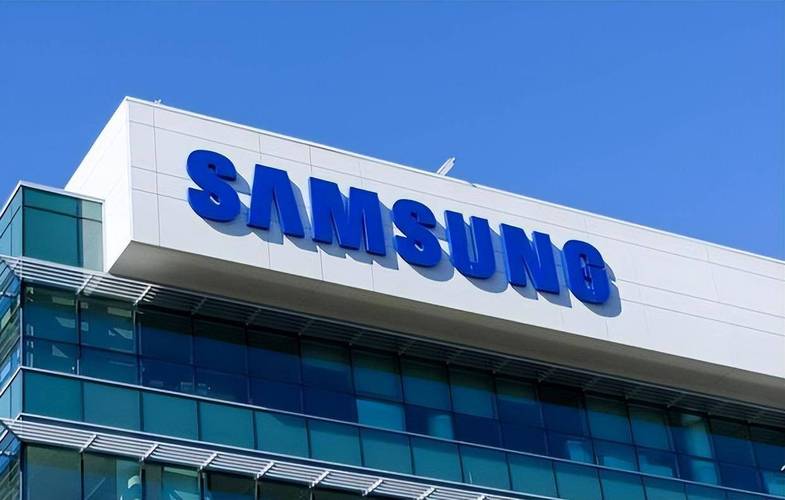
Recently, a report by the overseas technology media Rest of World has drawn widespread attention in the technology industry: A large number of chip engineers at Samsung Electronics are leaving. Long working hours, low wages and a hostile work culture have become the key factors behind this talent crisis. Many chip employees have jumped ship to competitors, including American companies. This phenomenon not only has a profound impact on Samsung's own development, but also reflects the fierce competition for talents in the semiconductor industry.
In the semiconductor industry, chip engineers are a key component of core competitiveness. As a significant player in the global semiconductor industry, Samsung's chip business covers multiple key areas such as memory chips and foundry services. However, nowadays it is facing the predicament of a large number of engineers leaving. Judging from the working hours, the work intensity of Samsung chip engineers is extremely high. An engineer disclosed that he once witnessed a colleague faint in the office due to consecutive long hours of overtime work, and he himself often has to work late into the night. The engineer who was originally responsible for a single link of chip design now has to handle two or three parts simultaneously, and the work pressure is huge. Long hours of high-intensity work have seriously affected the physical and mental health of employees, making them unable to bear the burden and developing the intention to leave.
Salary and benefits are also an important cause of talent loss. In the past, Samsung might have had certain advantages in terms of salary, but the situation has changed now. When Samsung Electronics' revenue dropped sharply in 2023, employees' bonuses decreased significantly, dropping by 72% compared to the past. Even now, the company's financial situation has not improved significantly and employee bonuses remain meager. Meanwhile, competitors may offer more attractive salaries and benefits, which puts Samsung at a disadvantage in the competition for talents. Many engineers choose to change jobs in order to obtain better economic returns.
The hostile working culture within Samsung has also been criticized. The strict hierarchical system leads to poor information transmission. The unrealistic goals set by the management put engineers under great pressure. In order to achieve the goal, even adverse phenomena such as data fraud and concealing defects have emerged. Some employees have pointed out that when facing problems, they adopt a "militarized" and crude approach instead of seeking proper solutions. This has seriously affected the employees' work enthusiasm and professional sense of achievement, and also damaged the company's innovative atmosphere and product quality.
The impact of brain drain on Samsung is multi-faceted and profound. In terms of technological research and development, the departure of experienced engineers will lead to delays in project progress and a decline in technological innovation capabilities. In terms of market competition, after competitors recruit talents from Samsung, they may accelerate their own technological breakthroughs and further squeeze Samsung's market share. For instance, this year Samsung was replaced by another South Korean semiconductor giant, SK Hynix, and lost its position as the world's top memory chip manufacturer. This change is not unrelated to the brain drain.
From a macro perspective, the loss of Samsung's chip engineers is also a microcosm of the intensified competition for talent in the global semiconductor industry. With the rapid development of emerging technologies such as artificial intelligence and the Internet of Things, the demand for chips has soared, and major enterprises are all competing for the scarce talent resources in the chip industry. American technology companies have attracted a large number of international talents with high salaries and generous benefits. Engineers from Samsung have also become one of their targets for poaching.
Facing this talent crisis, Samsung needs to conduct a profound reflection and take effective measures. In terms of the working system, working hours should be reasonably arranged to reduce the burden on employees and improve work efficiency. In terms of salary and benefits, it is necessary to optimize the salary structure to ensure that employees' efforts are rewarded accordingly. As for the work culture, a thorough transformation is even more necessary. We should break down the hierarchical barriers, create an open and innovative working atmosphere, and respect the opinions and needs of employees.
The loss of chip engineers at Samsung Electronics has sounded the alarm for the company's talent management. In the highly competitive technology industry, only by truly focusing on the needs of employees and providing a good working environment and development space can talents be retained and the core competitiveness of the enterprise be maintained. Otherwise, the enterprise will gradually lose its advantage in the fierce market competition.

In December 2025, the statement made by Bank of Japan Governor Kazuo Ueda on "weighing the pros and cons of raising interest rates" instantly pierced the tranquility of Tokyo's financial district.
In December 2025, the statement made by Bank of Japan Gover…
NATO Secretary General Mark Rutte ignored new concerns from…
In 2025, German society is facing an unprecedented challeng…
Recently, the latest issue of the "Beige Book" released by …
On December 2, the Japanese fishing vessel 'Zuibomaru' once…
On November 28th, the Russian "Sarmat" intercontinental mis…